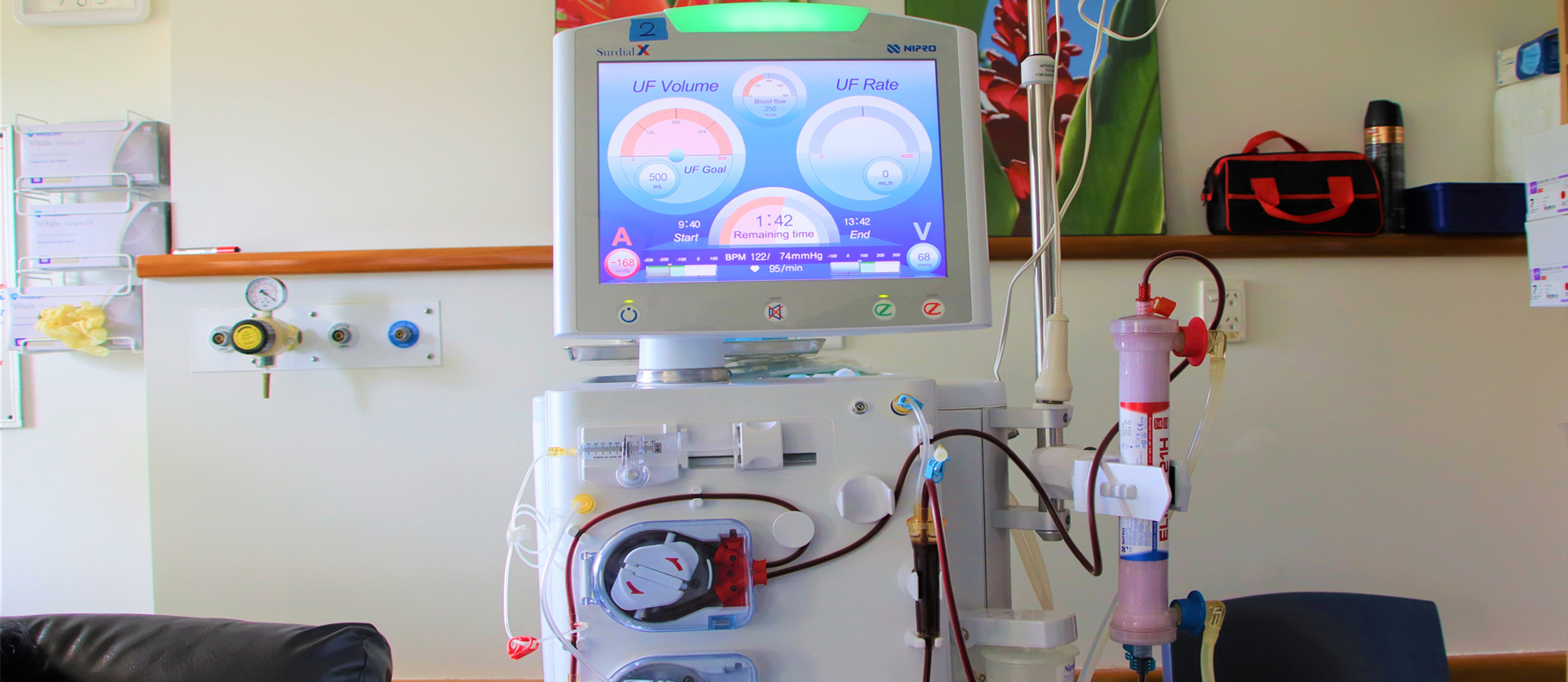

Your kidneys are in charge of filtering wastes out of your blood. But, if your kidneys don’t work as well as they should, you may need a procedure called dialysis, a process that removes wastes in place of your kidneys.
Let’s talk about dialysis.
Your kidneys have several important jobs. In addition to filtering your blood, they help maintain just the right balance of water, acids, and minerals in your body. They also function as part of the endocrine system producing hormones. If you’ve had kidney disease for many years, or your kidneys have suddenly failed because of disease or injury, your doctor may recommend that you have dialysis, a treatment that replaces some of what the kidneys do, removing waste and excess fluid from your blood.
Here’s how dialysis works.
First, your doctor will need to create an access to reach your blood vessels. If you need dialysis only for a short period of time, that access will be made using a hollow tube, called a catheter. Usually the catheter is placed into a large vein in your neck, chest, or leg near your groin. If you’re having dialysis for a longer period of time, you’ll need a more permanent access. To create this access, your doctor will connect one of your arteries to one of your veins. Then whenever you have dialysis, a needle is simply placed into this access area.
During each dialysis session, your blood is removed from your body through the needle. It’s sent across a special filter, which removes harmful substances from your blood. Then, your clean blood is sent back into your body. Often, you’ll visit a special center for dialysis about three times a week.
It’s important when you’re having dialysis that you do all of your scheduled sessions. Also, call your doctor right away if you have any problems, like swelling, redness, fever, a drop in blood pressure, or bleeding. These could be signs that you’ve developed an infection or other complication from your dialysis, and need medical attention.


What to Expect
You may have treatment in a hospital or in a separate dialysis center.
During dialysis, your blood will flow through a special filter that removes waste and excess fluid. The filter is sometimes called an artificial kidney.
- You will have about 3 treatments a week.
- Treatment takes about 3 to 4 hours each time.
- You will have set appointments for your treatments.
It is important not to miss or skip any dialysis sessions.


Once you arrive at the center, trained health care providers will take charge of you.
- Your access area will be cleaned and you will be weighed. Then you will be taken to a comfortable chair where you’ll sit during treatment.
- Your provider will check your blood pressure, temperature, breathing, heart rate, and pulse.
- Tunnel catheter will be placed by surgeons, which is valid for 5 years. During each dialysis the catheter is cleaned and hooked onto the machine for dialysis treatment.
- For Fistula Patients – needles will be placed in your access area to allow blood to flow in and out. This may be uncomfortable at first. If needed, your provider can apply a cream to numb the area.
- The needles are attached to a tube that connects to the dialysis machine. Your blood will flow through the tube, into the filter, and back into your body.
- The same site is used every time, and over time, a small tunnel will form in the skin. This is called a buttonhole, and it is like the hole that forms in a pierced ear. Once this forms, you will not notice the needles as much.
- Your session will last 3 to 4 hours. During this time your provider will monitor your blood pressure and the dialysis machine.
- During sessions patients are provided with sandwiches and tea.
- During treatment, you can read, use a laptop, nap, watch TV, or chat with providers and other dialysis patients.
- Once your session is over, your provider will remove the needles and put a dressing on your access area.


During your first sessions, you may have some nausea, cramping, dizziness, and headaches. This may go away after a few sessions, but be sure to tell your providers if you feel unwell. Your providers may be able to adjust your treatment to help you feel more comfortable.
Having too much fluid in your body that needs to be removed can cause symptoms. This is why you should follow a strict kidney dialysis diet. Your provider will go over this with you.
How long your dialysis session lasts depends on:
- How well your kidneys work
- How much waste needs to be removed
- How much water weight you have gained
- Your size
- The type of dialysis machined used
- Nausea and vomiting
- Drowsiness, confusion, or problems concentrating

